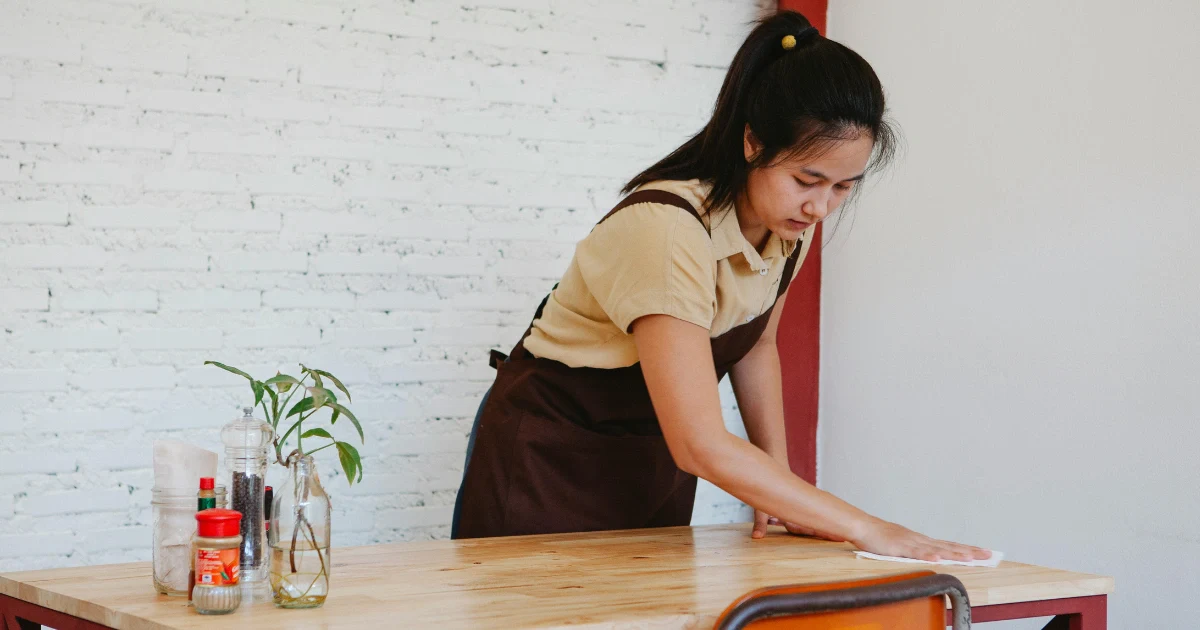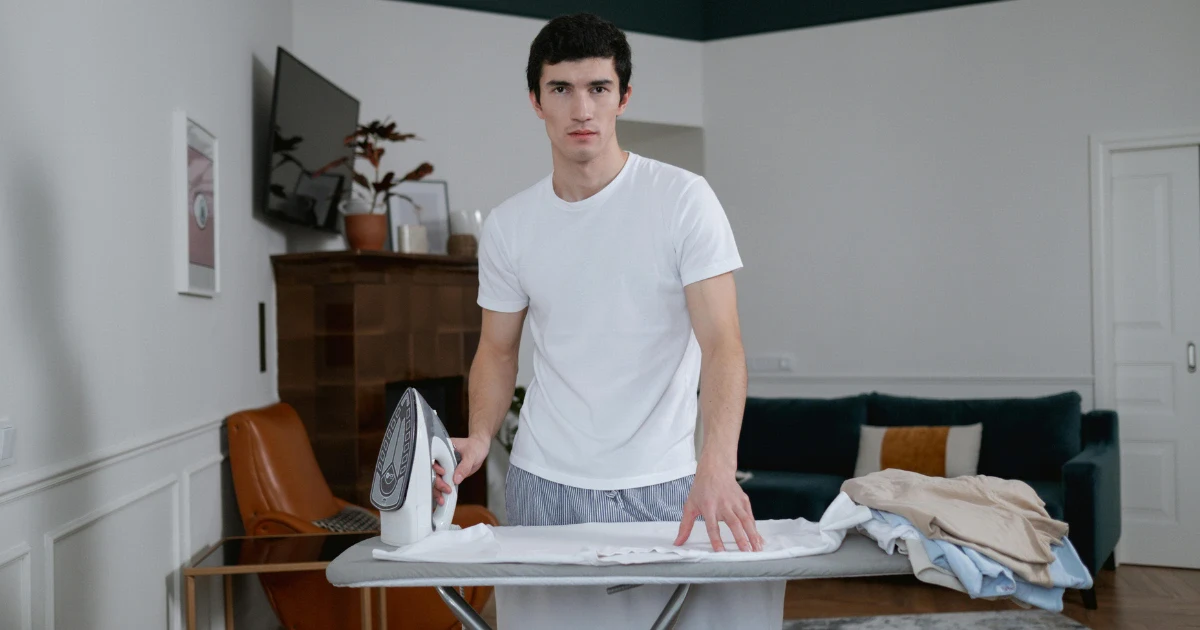
Introduction—Why Giving Teens Responsibility Unlocks Their True Potential
What if I told you that skipping these 10 responsibilities could leave your teen unprepared for adulthood—and strain your relationship? This statement may seem overly dramatic, but it’s true. But it’s real. The 10 responsibilities of a teenager at home aren’t just chores—they’re life skills in disguise.
Between the eye rolls and “I’ll do it later” sighs, there’s something bigger happening. They’re not only assisting around the house when they wash the dishes, take out the garbage, or do the laundry. They’re building confidence, learning independence, and laying the foundation for real-world survival.
Many parents think responsibilities are just about keeping the house running. However, they also influence your teen’s mental health, identity, and perception of their place in the world. If we miss this phase, we are not doing them any favors.
This stage isn’t about being strict—it’s about setting them up to win in life. Ready? Let’s break it down.
10 Responsibilities Of A Teenager At Home That Shape Their Future

Your teen’s future success starts right here—in your home. These 10 responsibilities of a teenager at home aren’t just chores; they’re the building blocks of confidence, independence, and real-world readiness. Let us break them down.
1. Mastering Personal Hygiene: Building Self-Worth from the Inside Out
Let’s be honest: no one wants to be the teen who walks into class with greasy hair and morning breath. Daily self-care routines, such as showering, grooming, and brushing teeth, may seem basic, but they teach your teen how to respect themselves and others around them.
The practice isn’t just about looking fresh. When teenagers feel clean and put together, their confidence soars, which in turn influences how they present themselves in public, interact with friends and take themselves seriously. Teaching this habit early on builds a sense of accomplishment that lasts long after high school.
You may want to read: The Ultimate House Rules For Teenagers—No More Chaos
2. Keeping Their Space Clean: Respecting Their Environment
A messy room might seem harmless, but it reveals a great deal about a teenager’s mindset. Easy chores like making their bed, putting away laundry, and keeping their room clutter-free teach more than tidiness—they teach accountability.
When teenagers take care of their surroundings, they begin to take ownership of their lives. Clean surroundings support clear thinking, a better mood, and less stress. It’s not only about the space; it’s about instilling the habit of respecting their environment and themselves.
3. Helping with Family Meals: From Kitchen Clueless to Cooking Confident
It’s more than just flipping pancakes and microwaving pizza rolls. Getting teens involved in meal prep, setting the table, and even planning simple dinners helps them build serious life skills without even realizing it.
They learn budgeting, basic nutrition, and how to feed themselves without ordering takeout. Plus, cooking can boost confidence and creativity. Knowing their way around a kitchen gives them a taste of independence (pun totally intended) and prepares them for dorm life or their first apartment.
You may want to read: Why Do Teenagers Hate Their Parents? Turn Conflict into Love
4. Doing Their Laundry: Say Goodbye to the ‘Mom-Will-Do-It’ Mentality
Nothing says, “I’ve got my life together,” like a teen who can manage their socks. From sorting and cleaning to folding and putting clothes away, laundry is one of the most basic yet empowering responsibilities for teens.
It teaches personal accountability, and honestly, the first time they wore a clean shirt, did they wash it themselves? That’s a small win with a big impact. No more “Mooom, where’s my hoodie?”
5. Managing Screen Time: Teaching Self-Control in a Digital World
Teens today live online, and it’s easy for hours to disappear into TikTok or gaming. But learning to set limits, prioritize real-life connections, and take digital detoxes is huge.
Teens who regulate their screen time develop emotional regulation and focus and learn how to balance their digital life with other aspects of their lives. Too much screen time can disrupt sleep, mood, and relationships. Helping them create healthy habits now sets them up for better mental health and stronger attention spans later.
You may want to read: Out of Control Teenager? How to Take Back Control

6. Caring for Siblings or Pets: Growing Empathy at Home
Whether it’s walking the dog, feeding the cat, or watching a younger sibling while you cook dinner, this responsibility teaches more than just patience—it fosters empathy, nurtures instincts, and cultivates reliability.
It’s one of those teenage responsibilities at home that naturally builds emotional intelligence. Teenagers learn that what they do matters when they take care of someone else. Bonus? When younger brothers start to look up to them (even if they act like they don’t), it strengthens family ties.
7. Participating in Household Chores: Building a Team Spirit
Vacuuming, taking out the trash, wiping counters, or tidying shared areas may sound like simple tasks, but they’re core to learning teamwork.
These household responsibilities for teens reinforce the idea that they’re part of a family unit, not guests at a free hotel. Contributing regularly fosters accountability, reduces entitlement, and demonstrates that shared spaces come with shared responsibilities.
You may want to read: Worried For My Daughter After A Breakup: Help Her Now
8. Managing Schoolwork Without Nagging: Developing Academic Ownership
What is the true value of flexibility? A teenager who completes their homework without requiring five nudges is truly exceptional. Time management, goal-setting, and meeting deadlines are foundational life skills.
By owning their academics, teens build self-motivation, which is a whole different game from doing things just to avoid getting grounded. This helps them grow in confidence, reduce stress, and establish routines they’ll carry into adulthood—whether in college, career, or beyond.
You may want to read: Quotes About Teenage Life Lessons That Hit Too Hard
9. Practicing Self-Care and Mental Health Awareness
Journaling, mindfulness, getting enough sleep, and managing stress aren’t just buzzwords—they’re real responsibilities that teens should start taking ownership of early. It’s not about being perfect; it’s about having emotional check-ins and knowing how to deal with the good and challenging times.
Encouraging teens to talk openly about their mental health teaches resilience, empathy, and self-awareness. It also helps them feel free to ask for help when they need it. Such an obligation is one of the most underrated but powerful responsibilities of a teenager at home, especially in today’s fast-paced digital world.
10. Exploring Future Goals and Responsibilities Beyond Home
Setting goals, discovering passions, and getting involved in the community—through volunteering, part-time jobs, or creative hobbies—is where teens begin to step into their future selves.
This responsibility provides teens with a safe space to experiment with independence while maintaining a support system at home. It gives them confidence and direction, helping them understand that life isn’t just about now—it’s about what’s next.
You may want to read: How Social Media Affects Relationships With Family: Teens & Screens
Beyond Tasks — Life Lessons Every Teen Should Learn at Home

It’s easy to see chores as just boxes to tick—wash this, clean that, take out the trash. However, teen responsibilities at home extend far beyond daily tasks. They quietly teach the important things, like respect, understanding, and strength.
When your teen helps with dinner or looks after their younger sibling, they’re not just being helpful—they’re learning to care about others. When they handle schoolwork without reminders, they’re not just avoiding conflict—they’re developing discipline. Every job helps make the teenager stronger mentally and better prepared for the real world.
In short, household responsibilities for teens are more than chores—they’re the training ground for adulthood. These daily habits help them become more likable, prepare for freedom, and shape their true selves.
You may want to read: Why Is My Daughter So Clingy: Uncovering The Hidden Reasons
Hidden Benefits of Giving Teens More Responsibility
You might feel like you’re taking a risk when you give your kid more responsibility, but it’s often the best thing you can do. When teens are trusted with real tasks, they feel seen, respected, and capable. And that shift doesn’t just help them—it brings you closer together, too.
Responsibility at home encourages emotional growth, independence, and, most importantly, trust. Instead of constant reminders or power struggles, you’ll start seeing initiative and accountability.
And here’s a bonus: when teens contribute meaningfully, they develop a genuine sense of gratitude. Entitlement fades when they realize that things don’t magically get done—someone has to make the effort. Including them in your daily life will help them thrive and strengthen your relationship.
You may want to read: Break Free: 8 Things A 15-Year-Old Should Be Allowed To Do
How to Assign Responsibilities Without Power Struggles

Giving your teen tasks at home shouldn’t feel like starting a war. The trick? Swap nagging for empathy, consistency, and a sprinkle of encouragement.
Start by talking, not lecturing—ask how they’d feel taking charge of certain tasks. Pay attention. Then, ensure that everyone is aware of what to expect. Teens respond better when they feel heard rather than being told what to do.
Forget perfection. The laundry might come out wrinkled, and the dishwasher may look like a puzzle gone wrong—and that’s fine. Pay attention to effort instead of perfect results. It takes work to grow.
To keep things running smoothly, create a responsibility chart or a weekly schedule to ensure tasks are completed on time. It puts things in order without sounding like a list of orders. When your teen knows what you expect, they are less likely to argue and more likely to take responsibility.
The goal? Turning chores into habits, not battles.
You may want to read: How to Be a Good Parent to Young Adults: A Comprehensive Guide
Raising Teens in the US? Tailoring Responsibilities for American Culture
If you’re parenting a teen in the US, you already know the juggle is real—school stress, part-time jobs, sports, and more. So, when it comes to assigning responsibilities to teenagers at home, the goal isn’t to pile it on—it’s to balance them right.
American teens often face packed schedules, which means their household responsibilities should fit around their academic load and personal growth. The key is flexibility—maybe they don’t have time to vacuum every night, but they can definitely handle weekend laundry or help with meals on Sundays.
Give them freedom, but not a free pass. But teens still need order to do well, even though having responsibilities helps them become more independent. This balance fosters respect, builds time management skills, and prepares them for adult life, where no one cares if practice runs late; the trash still gets taken out.
Parenting in the US? It’s about guiding, not micromanaging.
FAQs
Q: How do I encourage a lazy teenager to take more responsibility at home?
A: Laziness in teens often masks feelings of overwhelm, stress, or a fear of failure. Instead of becoming frustrated, try breaking down activities into manageable steps. Replace criticism with encouragement, and recognize effort rather than just outcomes. Consistency is key—pair it with small rewards or verbal praise to maintain steady motivation.
Q: What if my teen refuses to do chores even after repeated reminders?
A: If your teen is resisting, it’s crucial to take a moment to listen and pause. Refusal is frequently a signal, whether it represents stress, rebellion, or a lack of connection. Use family meetings to foster a calm dialogue, establish natural consequences, and set gentle boundaries. This strategy promotes accountability without a power struggle.
Q: At what age should I start assigning home responsibilities to my child?
A: You can start around age 10 with simple tasks, such as tidying up or feeding pets. By their early teens, they are ready for extra responsibilities such as laundry, meal preparation, and time management. Frame responsibilities as a sign of trust, not punishment, and they’ll begin to see it as a path to independence.
Conclusion: Your Teen Is Capable—Give Them the Tools and Trust
Here’s the thing—the 10 responsibilities of a teenager at home aren’t about making life easier for parents (though that’s a bonus). They are intended to show your teen that you believe in their abilities. Every load of laundry folded, every meal prepped, every task followed through? That is your way of saying, “I trust you.”
Responsibility is not a punishment; it is a vote of confidence. And certainly, there may be eye rolls, forgotten chores, or pushback. But stay consistent. Be patient. Guide without hovering.
When you hand over these tools with trust, your teen not only completes the task but also develops into a person capable of handling life. That’s not just helpful. That is compelling.









